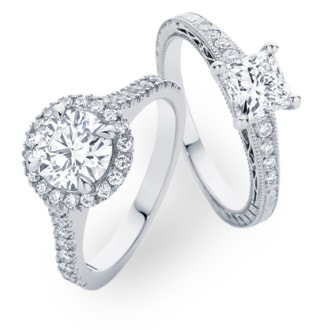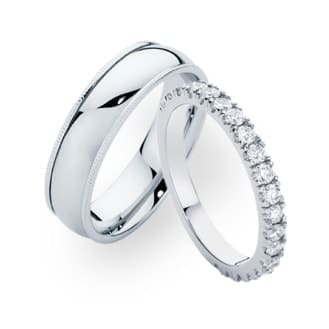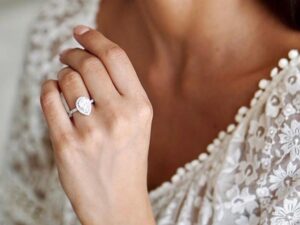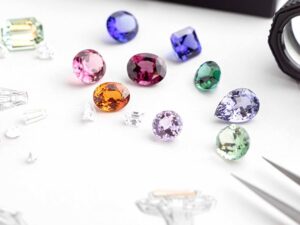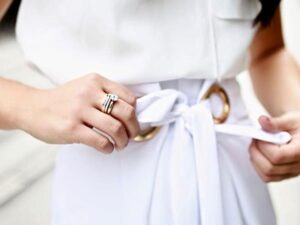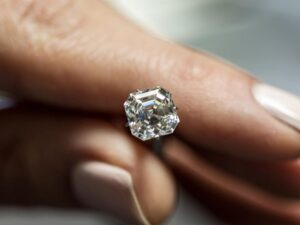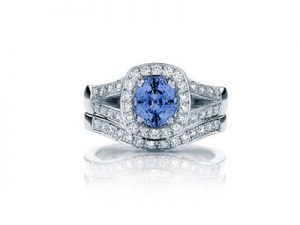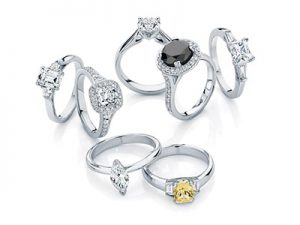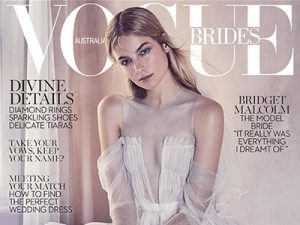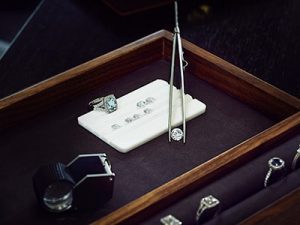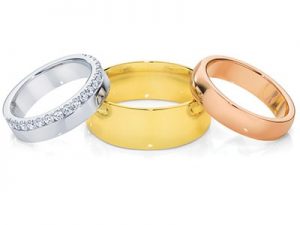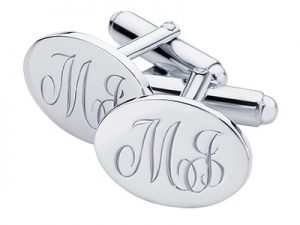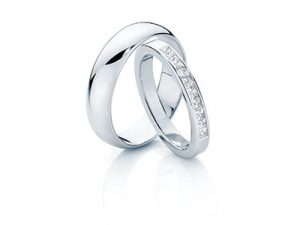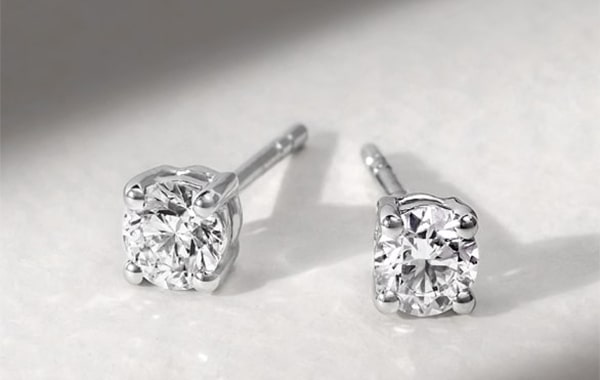9ct Gold vs 18ct Gold
by Kate Reid
February 1, 2019 / Jewellery Buying Guide, Learn About Metals
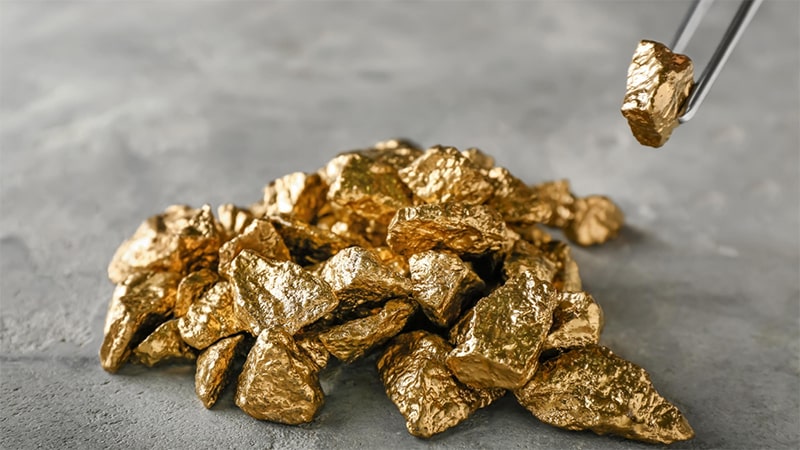
One of the most common questions we receive from couples planning their custom engagement or wedding rings is "What is the difference between 9ct and 18ct gold?" This guide will walk you through the main characteristics that set them apart.
You may be wondering what exactly ‘ct’ or sometimes seen as ‘K’, refers to. The ‘carat’ of a metal denotes the percentage of pure gold in the alloy, with 9ct being 37.5% and 18ct 75% pure gold.
Gold in its purest form is too soft to be used in fine jewellery, so it is commonly mixed with other metals to increase its strength and durability, as well as to create unique colours like rose gold and white gold.
Colour

Metal Content
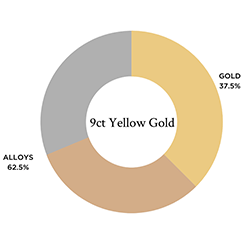
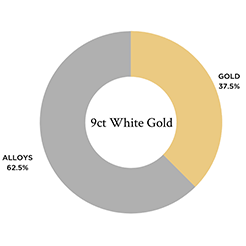
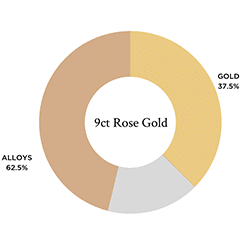
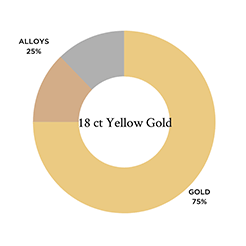
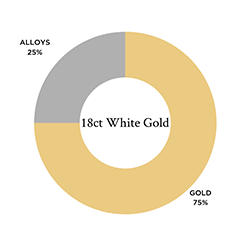
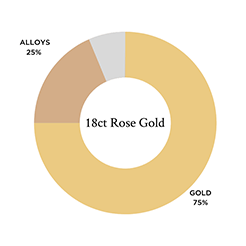
So which metal is best? Read more to learn about their durability for everyday wear and their ability to resist tarnish from everyday chemicals.
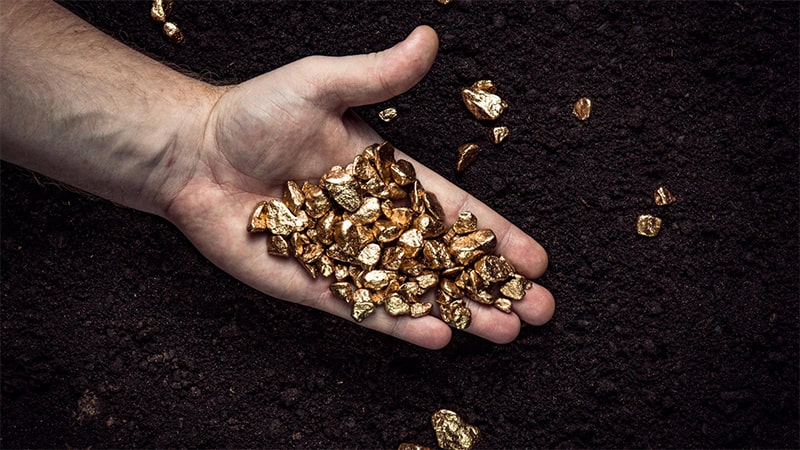
Durability

9ct
Less dense and likely to wear away over time.
18ct
More resistant to hard knocks. Lasts longer with everyday wear.
9ct gold contains a larger percentage (62.5%) of non-precious metals than 18ct gold (25%). A common misconception is that this makes 9ct more durable of a metal for everyday wear, but this is not actually the case. The other metals used result in 9ct gold being less dense which means it has a tendency to wear away much more quickly. 18ct gold is longer wearing and more resistant to damage, making it the recommended choice for everyday wear.
Resistance to Tarnish

9ct
More likely to tarnish from chemicals like chlorine, hairspray and perfume.
18ct
More resistant to tarnish due it’s higher Gold content. Gold is the least reactive of all metals.
In its pure form, gold is one of the least reactive elements. More than half the content of 9ct gold is made up of other elements that are more prone to tarnishing and eroding. As a consequence, 9ct is more likely to discolour or be damaged by exposure to chemicals. Exposure to chemicals and perspiration can mean your 9ct jewellery may appear dull and discoloured.
Summary
At the end of the day, 18ct gold is worth the higher price. It has twice the gold content of 9ct making it superior in terms of durability and performance.
This does not mean that 9ct is not a fine choice for certain jewellery. In fact, 9ct can be a great choice for dress rings, earring and pendants that are not worn every day. For pieces such as engagement rings and wedding rings, 18ct is a much more durable and long-lasting choice.
It is also important to outline the difference between 18ct white gold and platinum when discussing which metals are more suitable for certain designs. Platinum is a white metal that is used almost in its pure form (95%). It is also extremely dense making it heavier than white gold. Platinum is renowned for its hard and long-wearing qualities, which is what makes it so ideal for engagement rings with very fine settings. The other bonus about Platinum is that because it is white in its natural state there is no need to have it rhodium plated as is the case with white gold. What is the catch? Platinum is typically more expensive than 18ct gold. To understand the differences between platinum and white gold, read our comparison here.
Interested in more information about how to choose your engagement or wedding rings? Click here to read our engagement or wedding ring guides:
About Larsen Jewellery

Ethically
made
We are 100% carbon neutral, we offer Fairtrade Gold and we donate 10% of profits to charity.

Expert advice from
qualified jewellers
Speak directly to our talented craftsmen and learn from their extensive diamond and jewellery knowledge.

Exceptional
craftsmanship
We never compromise on quality. All our custom-made jewellery is backed by a lifetime guarantee.
We specialise in designing and crafting exquisite engagement rings that are as individual as you.
Come in for a design consultation with one of our friendly jewellers, and choose from a carefully sourced selection of loose diamonds, sapphires or other coloured gemstones. All engagement rings are lovingly made in our studio workshops and are covered by our lifetime guarantee.
Find out moreSelect from our wide range of women’s and men’s wedding ring designs or create your own unique design.
Choose from a wide selection of metal types, diamonds and gemstones and receive expert advice on the perfect wedding band for you. You can even experience our workshops first-hand by literally making your own wedding bands.
Find out moreRelated Posts
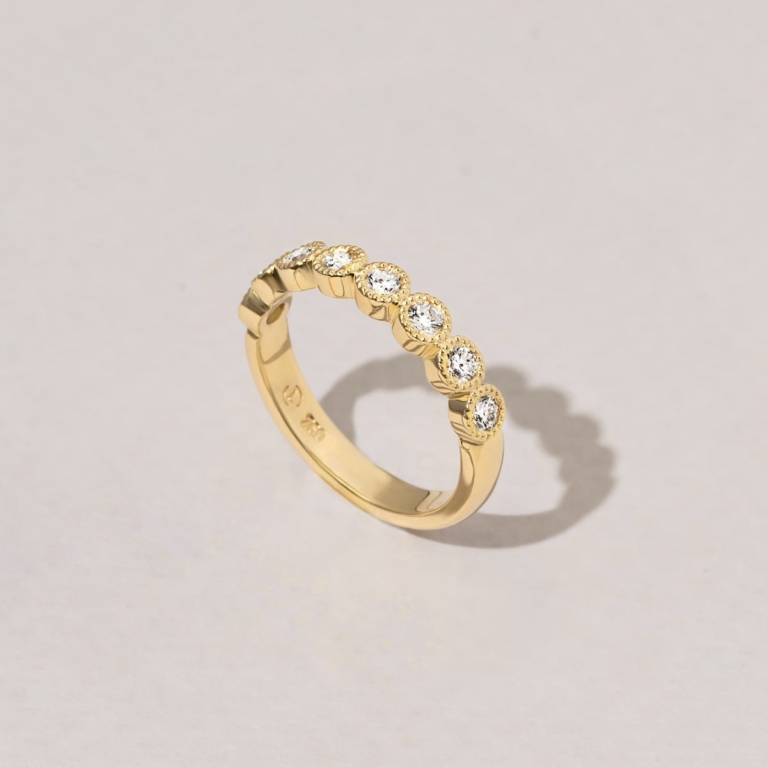
The Bachelors Australia Rings – Season 11, 2023
The Bachelors Strike Gold In Love and Larsen A Sparkling Photo Finish Sees Viewers Enchanted SYDNEY, Australia, December 20, 2023: It was...
READ MORE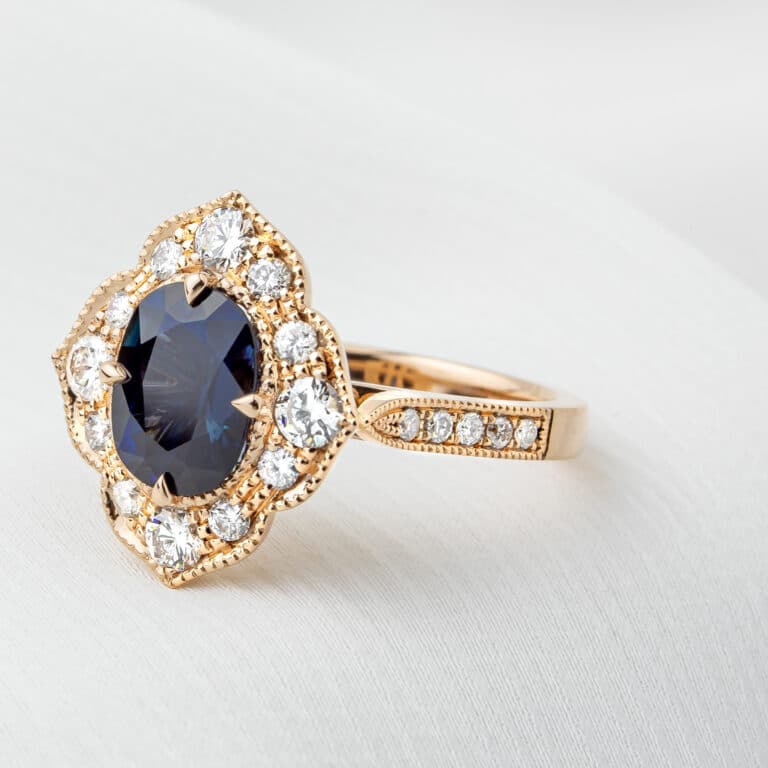
Sapphire Rings: The Ultimate Guide to Buying a Sapphire Ring
When it comes to expressing eternal love and commitment there are few gestures that are as meaningful as an engagement ring. Diamonds...
READ MORE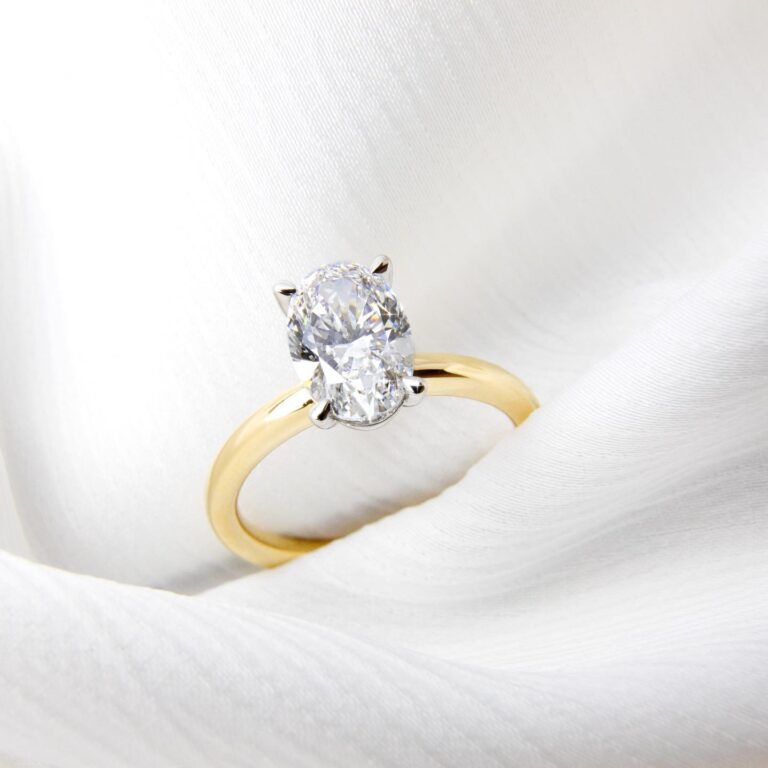
A Guide to 1 Carat Diamond Engagement Rings
Engagement rings are timeless symbols of love and commitment. And when it comes to capturing the essence of love, a solitaire diamond...
READ MORE